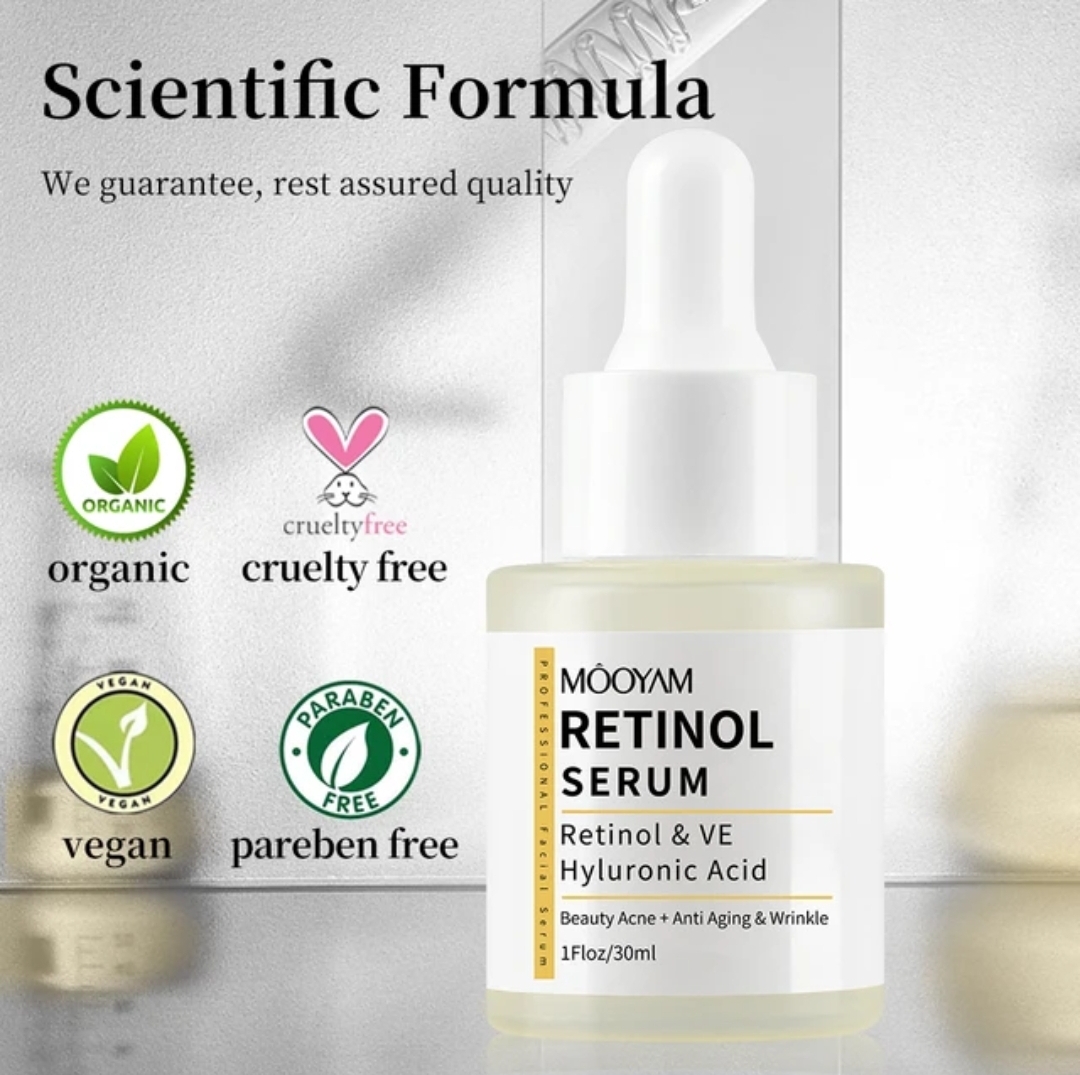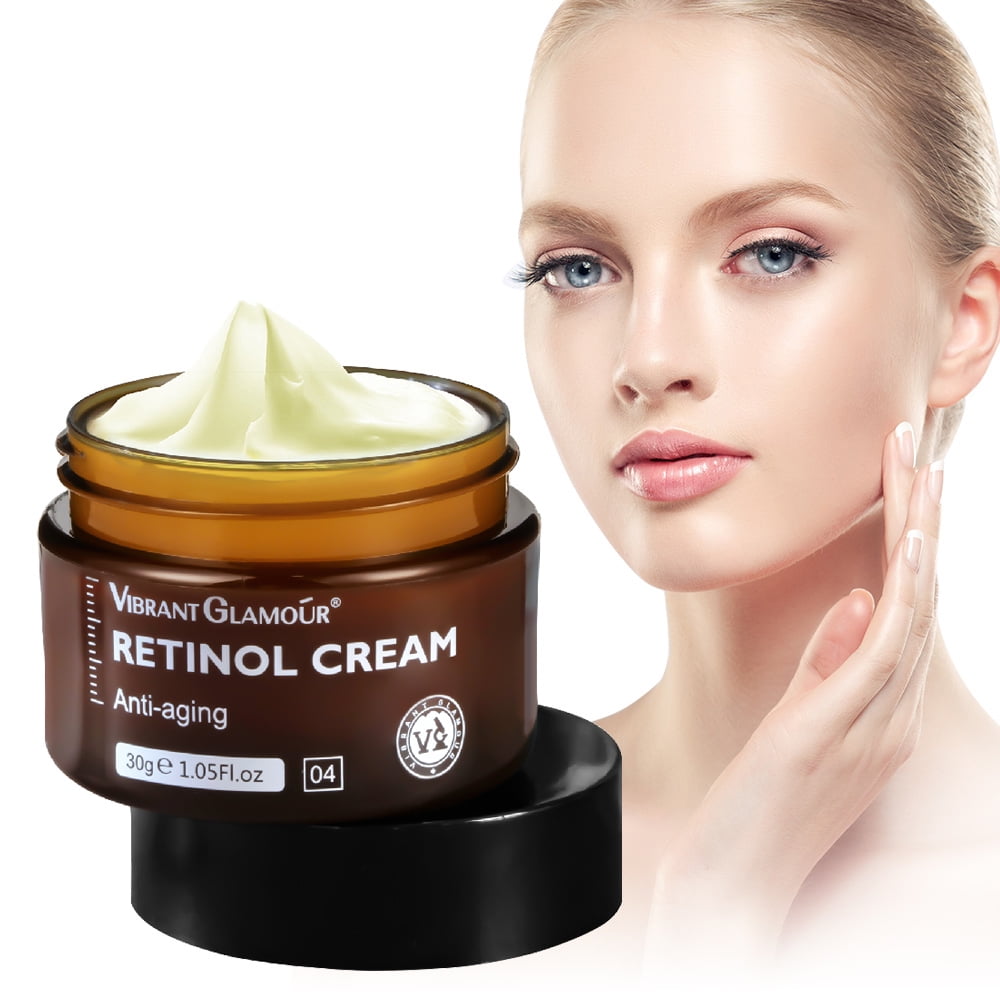**Let’s talk about anti-aging, shall we?** If you’re here, chances are you’ve been scrolling through skincare aisles, reading countless reviews, or just plain Googling your heart out trying to figure out what the fuss is about retinol. And let me tell you, it’s not just hype. Retinol is the skincare superstar that everyone’s been raving about. But with so many options out there, finding the best anti-aging retinol can feel like solving a Rubik’s Cube blindfolded. That’s where we come in. We’re breaking it all down for you, so you don’t have to stress over it anymore.
Here’s the deal: retinol is a form of vitamin A that helps boost cell turnover, smooth fine lines, fade dark spots, and even out your skin tone. Sounds too good to be true, right? Well, it’s not. But not all retinols are created equal. Some can be harsh, others might not deliver the results you’re hoping for, and let’s not forget the dreaded “retinol purge” that can leave your skin feeling like it’s been through a war. So, buckle up, because we’re about to deep-dive into everything you need to know to find the best anti-aging retinol for your skin.
Before we get into the nitty-gritty, let’s set the record straight: retinol isn’t just for older folks. Whether you’re in your 20s, 30s, or beyond, retinol can be a game-changer for maintaining youthful, radiant skin. But it’s all about picking the right one and using it correctly. Ready to unlock the secrets? Let’s go!
Read also:Dress To Impress A Day In Paris Theme Ndash Your Ultimate Style Guide
Why Retinol is the Holy Grail of Anti-Aging
Let’s start with the basics, shall we? Retinol is essentially the Swiss Army knife of skincare ingredients. It’s a form of vitamin A that works by speeding up cell turnover, which means it helps your skin shed old, dead cells faster and replace them with fresh, new ones. This process not only smooths out fine lines and wrinkles but also brightens your complexion and evens out your skin tone. In short, it’s like a reset button for your skin.
But here’s the kicker: retinol doesn’t just work on the surface. It penetrates deep into the layers of your skin, stimulating collagen production. Collagen is the protein that keeps your skin firm and elastic, so boosting it means fewer saggy bits and more glowy, bouncy skin. And who doesn’t want that?
Oh, and let’s not forget about hyperpigmentation. Whether it’s from sun damage, acne scars, or hormonal changes, retinol can help fade those pesky dark spots over time. So, if you’ve been struggling with an uneven skin tone, this is your golden ticket to smoother, more radiant skin.
Top 10 Best Anti-Aging Retinol Products
Now that we’ve established why retinol is the ultimate anti-aging ingredient, let’s talk about the products. With so many options on the market, it’s easy to get overwhelmed. To save you the headache, we’ve rounded up the top 10 best anti-aging retinol products that are worth every penny.
1. RoC Retinol Correxion Deep Wrinkle Night Cream
This budget-friendly option is a favorite among skincare enthusiasts. It’s packed with pure retinol to target deep wrinkles and fine lines, leaving your skin feeling soft and smooth. Plus, it’s gentle enough for daily use, making it a great starter retinol for beginners.
2. The Ordinary Granactive Retinoid 2% Emulsion
If you’re looking for a science-backed option, The Ordinary has you covered. Their Granactive Retinoid formula is designed to minimize irritation while delivering maximum results. It’s lightweight, non-greasy, and absorbs quickly, making it perfect for all skin types.
Read also:Tommy Ivo Net Worth The Untold Story Behind The Numbers
3. Sunday Riley A+ High-Dose Retinoid Serum
This luxury serum is a splurge, but trust us, it’s worth it. It combines retinol with bakuchiol, a plant-based alternative that boosts its effectiveness while reducing irritation. The result? Smoother, firmer, and brighter skin in no time.
4. Differin Adapalene Gel 0.1%
Originally a prescription-only product, Differin is now available over the counter. It’s a retinoid that’s specifically formulated to treat acne, but it also works wonders for anti-aging. Its gentle formula makes it ideal for sensitive skin, and it’s affordable too.
5. Neutrogena Rapid Wrinkle Repair Retinol Serum
This drugstore gem is a fan favorite for a reason. It’s formulated with encapsulated retinol, which means it releases the active ingredient gradually, reducing the risk of irritation. Plus, it’s super hydrating, so your skin won’t feel dry or flaky.
How to Choose the Best Anti-Aging Retinol for Your Skin
Not all retinols are created equal, and what works for one person might not work for another. That’s why it’s important to choose a product that suits your skin type and concerns. Here are a few things to keep in mind:
- Skin Type: If you have sensitive skin, opt for a gentler formula like The Ordinary Granactive Retinoid or Differin. For oily or acne-prone skin, look for products that also contain salicylic acid or niacinamide.
- Strength: Start with a lower concentration of retinol, especially if you’re new to it. You can gradually increase the strength as your skin builds tolerance.
- Formulation: Creams are generally more hydrating, while serums are lighter and better suited for oily skin. Gels are a great option if you prefer something in between.
Understanding Retinol Concentrations
Retinol concentrations can range from 0.01% to 1%, and the strength you choose will depend on your skin’s needs. For beginners, it’s best to start with a lower concentration and work your way up. Higher concentrations can deliver faster results, but they also come with a higher risk of irritation. Always patch test before committing to a product, and consult a dermatologist if you’re unsure.
Breaking Down the Numbers
Here’s a quick guide to help you understand retinol concentrations:
- 0.01% – 0.02%: Ideal for sensitive skin or those new to retinol.
- 0.05% – 0.1%: Perfect for mild anti-aging benefits and acne treatment.
- 0.2% – 0.5%: Great for more noticeable results without being too harsh.
- 1%: Reserved for prescription-strength retinoids and should only be used under medical supervision.
Common Side Effects and How to Manage Them
Retinol is powerful, but it’s not without its side effects. The most common ones include dryness, redness, peeling, and sensitivity to sunlight. Don’t worry, though – these are usually temporary and can be managed with the right approach.
Here are a few tips to help you navigate the retinol journey:
- Start Slow: Use your retinol product once or twice a week and gradually increase frequency as your skin adjusts.
- Moisturize: Always follow up with a good moisturizer to keep your skin hydrated.
- Sunscreen: Retinol makes your skin more sensitive to UV rays, so wearing sunscreen daily is a must.
- Be Patient: Results don’t happen overnight. Give it at least 8-12 weeks to see noticeable improvements.
Retinol vs. Retinoids: What’s the Difference?
While retinol and retinoids both belong to the retinoid family, they’re not the same thing. Retinoids are prescription-strength and more potent than over-the-counter retinol. They include ingredients like tretinoin, adapalene, and tazarotene, and are often used to treat severe acne or advanced signs of aging.
Retinol, on the other hand, is a milder form of retinoid that’s available without a prescription. It’s great for anti-aging but might take longer to show results compared to its prescription counterparts. If you’re unsure which one to go for, consult a dermatologist to determine the best option for your skin.
Which One Should You Choose?
It all depends on your skin’s needs and concerns. If you’re dealing with stubborn acne or deep wrinkles, a prescription retinoid might be the way to go. But if you’re just looking to maintain youthful skin, over-the-counter retinol is a great choice.
Combining Retinol with Other Skincare Ingredients
Retinol can be a powerful ally when paired with the right skincare ingredients. Here are a few combinations that work wonders:
- Vitamin C: Boosts brightness and evens out skin tone.
- Hyaluronic Acid: Keeps skin hydrated and plump.
- Niacinamide: Reduces redness and strengthens the skin barrier.
- Bakuchiol: A plant-based alternative that enhances retinol’s effects while reducing irritation.
But beware: not all ingredients play nice with retinol. Avoid using it with harsh exfoliants like AHAs or BHAs, as this can lead to irritation and over-exfoliation.
Expert Tips for Using Retinol
To get the most out of your retinol, follow these expert tips:
- Apply at Night: Retinol is deactivated by sunlight, so it’s best used in the evening.
- Use a Pea-Sized Amount: A little goes a long way, so there’s no need to slather it on.
- Layer Strategically: Apply retinol after cleansing and toning, followed by moisturizer and sunscreen (if used during the day).
Conclusion: Your Journey to Timeless Beauty Starts Here
So, there you have it – everything you need to know about finding the best anti-aging retinol for your skin. From understanding how it works to choosing the right product and managing side effects, we’ve covered it all. Remember, retinol is a powerful tool, but it requires patience and consistency to deliver results.
Now it’s your turn to take action. Whether you’re a skincare newbie or a seasoned pro, finding the right retinol can transform your skincare routine. So, what are you waiting for? Head over to your favorite retailer, grab a product from our list, and let us know how it works for you. And don’t forget to share this article with your friends – because who doesn’t love glowing skin?
Until next time, keep shining!
Table of Contents
- Unveiling the Best Anti-Aging Retinol: Your Ultimate Guide to Timeless Beauty
- Why Retinol is the Holy Grail of Anti-Aging
- Top 10 Best Anti-Aging Retinol Products
- How to Choose the Best Anti-Aging Retinol for Your Skin
- Understanding Retinol Concentrations
- Common Side Effects and How to Manage Them
- Retinol vs. Retinoids: What’s the Difference?
- Combining Retinol with Other Skincare Ingredients
- Expert Tips for Using Retinol
- Conclusion: Your Journey to Timeless Beauty Starts Here


